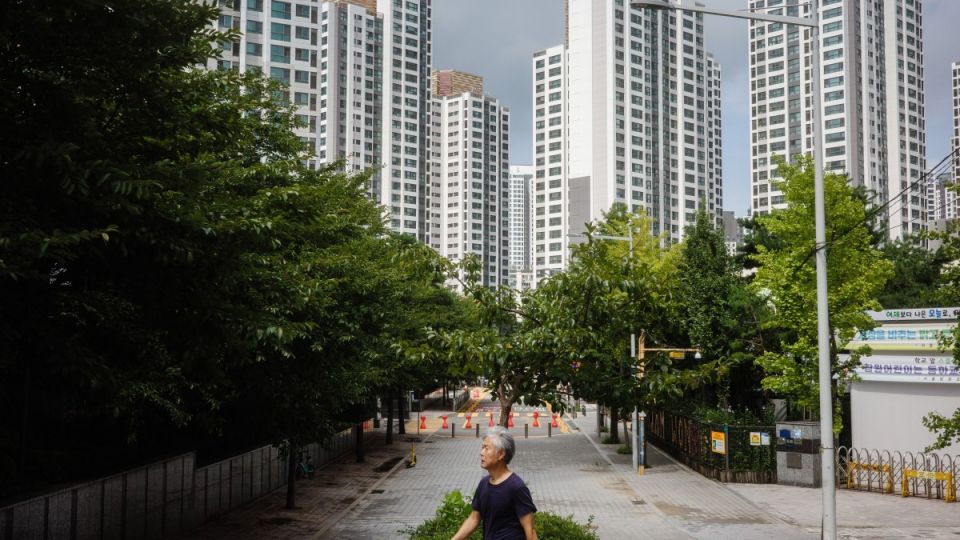October 9, 2025
SEOUL – Despite the government’s June 27 lending curbs that briefly cooled the housing market, property prices in Seoul are once again on a steep rise, heightening expectations for further policy action after the Chuseok holiday.
Apartment prices in Seoul rose 0.27 percent in the fifth week of September, according to data from the state-run Korea Real Estate Board Wednesday.
The pace of growth has accelerated for three straight weeks, increasing from 0.08 percent to 0.09 percent, 0.12 percent and 0.19 percent in the earlier weeks of the month.
All 25 Seoul districts saw housing prices rise in the cited week, with the so-called “Hangang River belt” in the northern part of the capital showing the steepest increases.
The term, coined in political circles, refers to eight riverfront districts in Seoul — Mapo-gu, Yongsan-gu, Yeongdeungpo-gu, Gwangjin-gu, Dongjak-gu, Seongdong-gu, Gangdong-gu and Jung-gu — that are located along the Hangang River but remain less developed than the three affluent southern districts of Gangnam-gu, Seocho-gu and Songpa-gu.
Market experts say “gap investment” in northern districts unaffected by government curbs has driven up Seoul’s housing prices, which had been stabilizing in recent months following the June 27 lending restrictions that limited home loans to 600 million won ($435,000) and required buyers in “anti-speculation areas” to move into their homes within six months of purchase.
A “gap investment” means buying a home with a small amount of personal funds by relying on a tenant’s jeonse deposit to cover most of the cost, without the buyer actually moving in.
This investment strategy has become virtually impossible in southern Seoul districts, including Gangnam-gu, Seocho-gu, and Songpa-gu, which were designated as anti-speculation areas under the June housing policy.
“Demand for gap investment has increased in northern districts ahead of a possible expansion of the regulations, boosting transactions of high-end apartments,” said Park Won-gap, chief real estate analyst at KB Kookmin Bank.
A total of 5,186 apartment transactions were reported in Seoul, with those priced over 1.5 billion won ($1.1 million) accounting for 21.1 percent, up more than 4 percentage points from the previous month, industry data showed.
“The government is likely to first implement additional lending restrictions after the Chuseok holiday, and if housing prices still fail to stabilize, it may expand anti-speculation zones to northern Seoul districts as a gradual way to cool the market,” Kim added.


